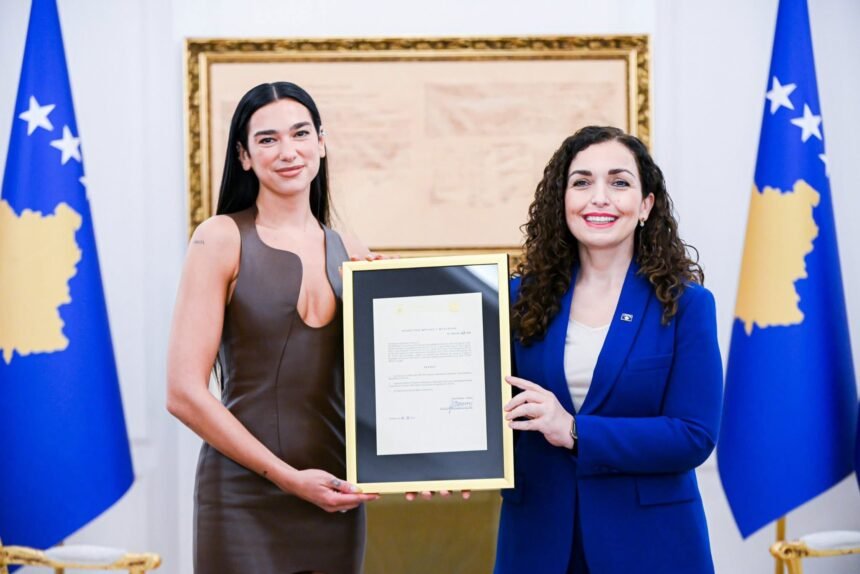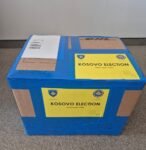The BBC has dedicated a special feature to Dua Lipa, the global pop star of Kosovar descent, during the Sunny Hill Festival currently taking place in Pristina. The focus of the piece was the official granting of Kosovan citizenship to Dua Lipa.
According to the BBC, Dua Lipa, who was born in London to Kosovar parents, spent part of her childhood in Pristina after her family returned following Kosovo’s declaration of independence.
The BBC highlighted her emotional statement that “now both sides of me are one” after receiving her Kosovan citizenship.
During the official ceremony, President Vjosa Osmani called it an “honor” to grant citizenship to Dua Lipa, describing her as “one of the most iconic cultural figures in the history of Kosovo.”
“Dua and Kosovo have always been inseparable. She has been and continues to be one of the strongest voices on the world’s biggest stages, making history with her achievements and inspiring millions worldwide. Our gratitude is endless for everything Dua has done and continues to do for Kosovo, for our youth, for our arts, and for our country’s international image,” Osmani wrote.
The BBC also noted that Dua Lipa is currently in Kosovo for the three-day Sunny Hill Festival, where she headlined on Friday night.
She has often spoken about her love for the country and founded a charitable foundation supporting vulnerable communities in Kosovo. At the official ceremony, she was welcomed by a children’s choir performing a version of her hit “Levitating.”
With this, Dua Lipa now holds British, Albanian, and Kosovan citizenship. She was granted Albanian citizenship in 2022 for promoting the country through her music and international fame. That same year, she was also named Honorary Ambassador of Kosovo by President Osmani.
Calling it an “honor and privilege to represent your country globally and continue your efforts worldwide,” Dua Lipa said her mission was to change how the world sees Kosovo.
The BBC also emphasized how Lipa co-founded the Sunny Hill Festival with her father in 2018, explaining last year that it was created “to change the narrative about Kosovo and the perception that it’s a country destroyed by war.”







